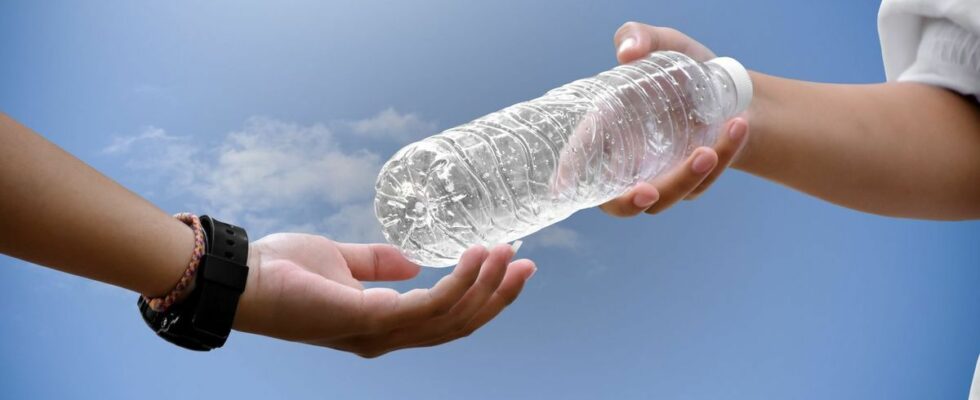Published on
updated on
Reading 2 min.
in collaboration with
Dr Gérald Kierzek (Medical Director of Doctissimo)
It’s hot, and your entourage (or your child) forgot to go out with their own water bottle? Is there a risk in sharing your drink or is it just in your head? Dr. Gérald Kierzek, medical director of Doctissimo, answers our questions.
Classic scenario during the summer holidays: you have gone to visit a site, or to the beach, it is hot and you only have one bottle or one flask for two (or more) in your bag. Is there a proven risk in the exchange of bottles?
Risks of bacterial infections when sharing a bottle
For our medical director, Dr. Gérald Kierzek, the risk does indeed exist, and it is mainly linked to bacterial proliferation.
“Every time you drink from a bottle or flask, bacteria from your mouth are deposited on the neck. These bacteria can multiply quickly, especially if the flask is shared or if it is not cleaned regularly. This can turn the flask into a veritable breeding ground for germs, potentially more contaminated than a dog’s bowl.” he answers.
Some of the bacteria that grow in gourds can be pathogenic and cause illness, including gastroenteritis. “This is especially true if the bottle is used for several days in a row without being cleaned.”
Even greater risk with children
This risk also increases when you lend your bottle or gourd to your child, as Dr Jennifer Dunphy points out in the HuffPost USdue to their greater residual saliva. “If a child is sick, more saliva usually gets into the drink they drink, which means there is a greater risk of viral particles and mucus get into the drink. This can lead to a higher risk of infection” she warns.
The opposite is also possible: the child is often more vulnerable to infections, so if you have a cold, avoid sharing your water bottle.
Failure to wash your water bottle regularly can lead to the buildup of saliva and skin residue, promoting bacterial growth.First of all, it is advisable to regularly change the water in your bottle to prevent it from stagnating. It is recommended to rinse the bottle after each use, to clean it carefully with dishwashing liquid and a bottle brush, and to let it air dry, including the silicone or plastic parts. Finally, we prefer a smooth bottle, without roughness, to prevent bacteria from developing there.recommends the medical director of Doctissimo. Of course, we do not forget “washing hands before and after using the bottle“, concludes the expert.
To avoid these risks, it is therefore advisable not to lend your water bottle, to drink from a glass rather than from the neck, and to ensure regular and rigorous cleaning of the water bottle and its cap.

